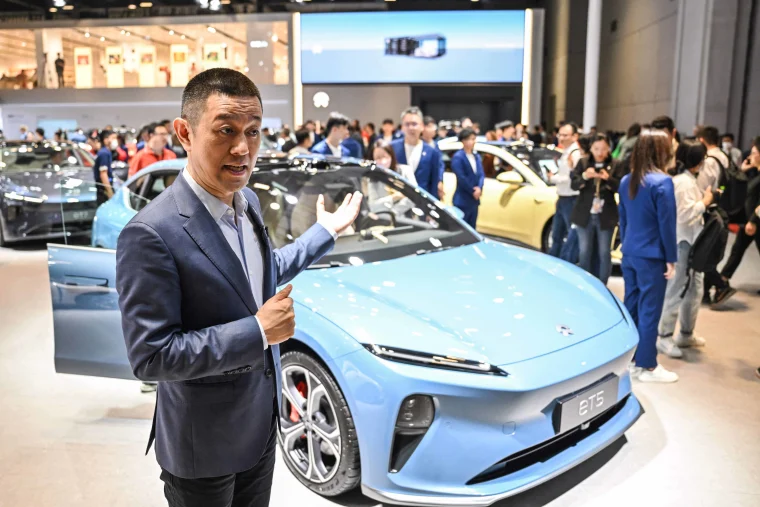Shares of Nio Inc, a Chinese electric vehicle maker, surged 20% on Thursday following a significant increase in vehicle deliveries during April.
The company’s Hong Kong-listed shares experienced a remarkable jump of up to 23% to reach 44.20 Hong Kong dollars, marking their highest level in over six weeks. Nio’s positive performance also contributed to a 2% increase in the broader Hang Seng index by midday trading.
Nio announced that it delivered 15,620 vehicles in April, reflecting a remarkable year-on-year surge of 134.6%.
According to the company’s statement on Wednesday, the deliveries comprised 8,817 premium smart electric SUVs and 6,803 premium smart electric sedans.
So far this year, Nio has delivered 45,673 vehicles, marking a 21.2% increase compared to the same period last year.
In addition to bolstering its vehicle deliveries, Nio has been expanding its battery swap partnerships to enhance the infrastructure side of the EV ecosystem, aiming to alleviate consumers’ concerns about driving range.
Several other Chinese EV manufacturers, including Li Auto, Xpeng, and BYD, also reported their April delivery figures on Wednesday. However, Li Auto was the only company to report a decline in deliveries compared to the previous month.
Li Auto delivered 25,787 vehicles in April, a decrease of 11% from March. Nonetheless, the company’s Hong Kong-listed shares saw a 3% increase.
Xpeng reported delivering 9,393 EVs in April, marking a 4% increase from the previous month. Meanwhile, BYD’s sales volume for EVs in April reached 313,245, up 3.6% from March’s figure of 302,459.
Chinese EV manufacturers have been engaged in a price war with their main competitor, U.S. automaker Tesla, amid intensifying competition in China, the world’s largest automobile market.
To stay competitive, major EV makers have been reducing prices, while local automakers strive to outsell Tesla by offering advanced technology and competitive pricing.
Xiaomi, a Chinese smartphone maker, entered the electric vehicle market in early April with the launch of its SU7 model, priced approximately $4,000 lower than Tesla’s Model 3. Xiaomi claimed that its new car would offer a longer driving range.
Recently, Xiaomi’s CEO Lei Jun announced that the new EV is performing better than expected, expressing optimism about breaking even sooner than initially anticipated despite selling it at a lower price point than Tesla’s Model 3.















































